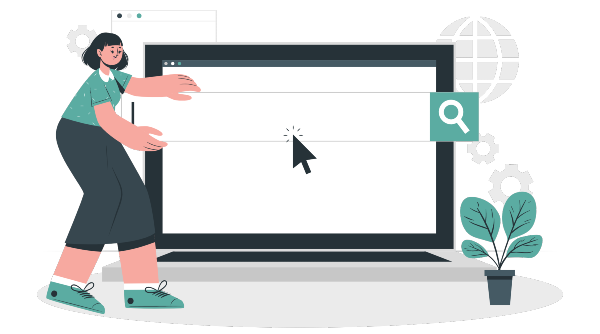In a world where we live more online than offline, learning to operate with the tools of the virtual environment is much more than a necessity, especially if you have a business or a website that you want to grow.
We have all heard more than once of the terms SEO On Page (SEO done on the website) and SEO Off Page (SEO outside the website). But let's see how much each of them matters for a good ranking in organic search results.

So let's remember the basics of SEO.
Let's say you have a functional and successful website. Sure, it looks like it has a lot of prospects, but how do you make it appear among the first or even the first in search engines and increase your organic views?
You already know that convincing search engines that you deserve to be seen online is not exactly an easy task. That's exactly why you need SEO.
Known as Search Engine Optimization, this is the term used to describe the necessary processes you must undertake to optimize your web page for search engines.
When we talk about SEO, we talk about some important topics like:
- The importance of matching the meta tags of pages with their content.
- Describing pages in such a way as to give search engines clues about what your website is about.
- Text formatting, correct use of H1, H2, H3 tags, etc.
In other words, SEO is the language that the search engine speaks and that you have the task of discovering.
Let's move on. Let's talk about the two components of SEO: On-Page SEO and Off-Page SEO.

The Anatomy of Off-Page SEO
There is no better combination of words to replace the term Off-page SEO than link building. And let's face it, how can a search engine better compare a web page's "votes of trust" if not through the links it receives from other pages?
"The most important thing is the content of a page," some think, "everything after that is just detailed."
They may be right, but let's step out of the virtual world and into the real one. How would you feel if you had no feedback from society regarding your activity? Perhaps this is why search engines also need to see how you relate to other web pages.
This fact does not mean, however, that everything in SEO is about the quantity of links pointing to your web page; it seems that their quality is also very important: where do these links come from, and what is the source of each one?
Link building is a vast topic and encompasses many aspects, but there are a few important things to keep in mind if you care about how your web page looks to search engines. Some of these are:
- Creating a connection with other web admins to improve off-page SEO. Contact them via Twitter, email, or Facebook – these are just some of the ways you can do this.
- Collaborate with other websites that are relevant to your niche – this helps build your page's online reputation.
- Seeing what links your competitors have can help you a lot! You can use the SEMRUSH tool to do this. The more you identify with the best, the more chances you have to become one of them!
- Practicing guest posting can bring you a lot of external validation in the virtual world. What does this mean? It's simple: you post quality content on other web pages, then add the link to your page.
Perhaps one of the most important tips on this topic is to post really good content, and it will naturally attract other good-quality links.
Why would you need off-page SEO anyway?
The answer may seem simple, but as simple as it seems, it is as important: Off-page SEO is not only a way to build a strong online name, but it is also a method to create strong relationships and connections in the virtual environment.

Let's not forget, however, the importance of On-Page SEO
If you already feel that you are overloaded with definitions and notions about SEO, my goal is not to drag you even more. So I'm going to try to make the definition of On-Page SEO much simpler.
On-page SEO refers to all the internal factors that make a page rank higher in search engines. It doesn't seem complicated, does it?
The quality of the content on your page, which should normally meet the requirements of the widest possible range of people, and the ability to translate this content into search engine language, are two of the most important components of On-Page SEO.

When we talk about creating good content, we are talking about content that would make people online copy and share your website pages.
The structure of the URLs, the format of the images, the loading speed of your web page, and the way you use keywords, tags, and HTML meta-tags – all these create the notion of On-Page SEO. In other words, it is the content that helps to label the quality of your website.
So, is it possible to make your website "search engine friendly"?
Is it possible to make your website appreciated by search engines and placed at the top?
As you can tell, the answer to these questions is "Yes".
Maybe it all depends on how well you know your chosen niche. Or maybe it's all about how well you know how to use SEO tools. Whatever the answer to this question is, you are the only one who can decide the fate and direction of your online project.

If your website is headed in the right direction from the start, you can't fail!
The SEOLITTE team is with you in the initiation of your project. Don't hesitate to contact us for help with both on-page and off-page SEO.
